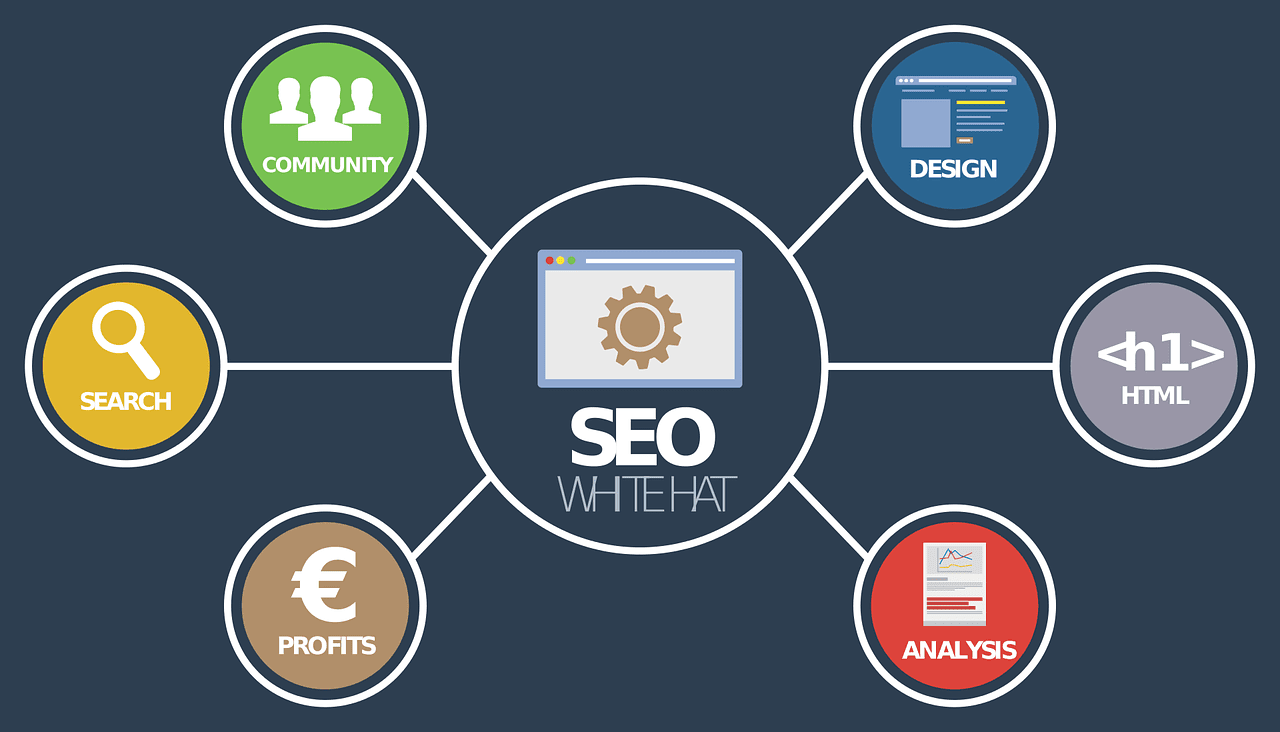Common SEO Mistakes and How to Avoid Them

Search engine optimization (SEO) is crucial for driving traffic to your website and improving your online presence. However, many website owners make common SEO mistakes that prevent them from achieving their desired results.
Some of the top SEO mistakes to avoid include neglecting keyword research, ignoring on-page optimization, overlooking technical SEO issues, neglecting mobile optimization, failing to optimize page speed, neglecting quality content, overusing or misusing keywords, neglecting link building, neglecting local SEO, and failing to monitor and analyze SEO performance.
In this article, we will discuss these common SEO errors in detail and provide recommendations on how to avoid them.
Key Takeaways
- Effective SEO requires avoiding common mistakes that can harm your website’s visibility and rankings.
- Neglecting keyword research, on-page optimization, technical SEO issues, mobile optimization, page speed, quality content, keyword usage, link building, local SEO, and SEO tracking can all negatively impact your SEO strategy.
- By implementing best practices for each of these areas, you can enhance your website’s SEO and drive more organic traffic to your site.
Neglecting Keyword Research
Keyword research is key to achieving successful SEO. It helps you understand what terms people use when searching for information related to your business. By incorporating these keywords into your web pages and content, you increase your chances of a higher search engine ranking.
To incorporate effective keyword research into your SEO strategy, the following tips are recommended:
- Brainstorm: Start by brainstorming the keywords that best represent your business and its products or services. List as many as possible, including long-tail keywords and variations of popular search terms.
- Research: Use keyword research tools, like Google’s Keyword Planner, to determine the popularity and relevance of your list of keywords. Choose terms that have high search volume and low competition.
- Integrate: Once you’ve identified your target keywords, integrate them naturally into your web page content. Avoid “keyword stuffing” or overusing keywords, as this can result in a penalty from search engines.
By taking the time to research and optimize your keywords, you increase the chances of people finding your website organically through search engines. This can ultimately lead to more leads and conversions for your business.
Ignoring On-Page Optimization
On-page optimization refers to the practice of optimizing individual web pages to rank higher and earn more relevant traffic in search engines.
Here are some key on-page optimization elements you should focus on:
- Page title: Include a relevant and concise page title. It should be less than 60 characters and include your primary keyword.
- Meta description: Write a meta description of fewer than 155 characters that describes your page’s content and encourages users to click through to your site.
- Header tags: Use header tags (H1, H2, H3, etc.) to create a clear and structured hierarchy of your content.
- Content optimization: Optimize your content with relevant keywords, internal links, and multimedia elements to provide value to your readers.
- Image optimization: Optimize your images with relevant filenames and alt tags to help search engines understand the content of your page.
| Element | Example |
|---|---|
| Page Title | <title>How to Optimise Your Web Pages for SEO</title> |
| Meta Description | <meta name=”description” content=”Learn how to optimize your web pages for better search engine rankings and visibility”> |
| Header Tags | <h1>On-Page Optimization</h1> <h2>Page Titles</h2> |
| Content Optimization | Use relevant keywords throughout your content and include internal links to related pages on your site. |
| Image Optimization | <img src=”example.jpg” alt=”example of on-page optimization”> |
By ignoring on-page optimization, you are missing out on critical opportunities to improve your website’s visibility and ranking potential. Follow these best practices and optimize your web pages to increase your chances of success.
Overlooking Technical SEO Issues
When it comes to SEO, technical elements play a significant role in website performance and search engine visibility. Unfortunately, many website owners tend to ignore these crucial technical SEO issues, leading to poor website rankings and traffic. In this section, we will highlight the most common technical SEO issues and offer guidance on how to address them.
Crawlability and Indexing Issues
One of the most critical technical SEO issues is crawlability, which refers to the ability of search engine crawlers to access and index your website’s content. Many factors can impact a website’s crawlability, including poorly optimized robots.txt files, broken links, and duplicate content. To improve your website’s crawlability and ensure that search engines can index your content, consider implementing the following best practices:
- Create a sitemap.xml file that lists all pages on your website
- Optimize your robots.txt file to allow search engines access to your site’s relevant content
- Fix broken links on your site with redirects or by updating links
- Remove duplicate content and ensure that all pages have unique meta descriptions and titles
Site Speed Issues
Slow loading websites lead to higher bounce rates, lower user engagement, and poor search engine rankings. It’s therefore crucial to ensure that your website loads quickly, especially on mobile devices. Consider implementing the following tips for improving your site’s speed:
- Compress image and video files to reduce file size
- Minimize HTTP requests by combining CSS and JavaScript files
- Enable browser caching to reduce load times for returning visitors
- Consider using a Content Delivery Network (CDN) to speed up content delivery
Mobile Responsiveness Issues
With mobile devices accounting for a significant portion of web traffic, optimizing your website for mobile is essential. Sites that aren’t mobile-friendly can experience lower search engine rankings as Google prioritizes mobile-responsive sites. Here are a few tips for ensuring that your website is mobile-friendly:
- Use a responsive website design that adapts to various screen sizes
- Optimize images and videos for mobile devices to reduce load times
- Avoid using pop-ups, which can be challenging to close on mobile devices
- Create mobile-friendly content that’s easy to read and navigate on smaller screens
| Technical SEO Issue | Best Practices |
|---|---|
| Crawlability and Indexing | Create a sitemap.xml file, optimize your robots.txt file, fix broken links, and remove duplicate content |
| Site Speed | Compress images and video files, minimize HTTP requests, enable browser caching, and consider using a CDN |
| Mobile Responsiveness | Use a responsive website design, optimize images and videos for mobile devices, avoid pop-ups, and create mobile-friendly content |
Ignoring technical SEO issues can harm your website’s search engine visibility and user experience. By implementing the best practices outlined above, you can improve your website’s performance, search engine rankings, and ultimately, drive more organic traffic to your site.
Neglecting Mobile Optimization
With the increasing use of mobile devices, it’s essential to optimize your website for mobile users. Mobile optimization is one of the crucial SEO best practices that ensure your website provides an exceptional user experience for mobile users. Here are some tips to ensure your site is mobile-friendly:
- Choose a mobile responsive theme or template that can adjust to various screen sizes.
- Use large font sizes and content that is easy to read on a smaller screen.
- Compress images to reduce page load time.
- Avoid pop-ups and interstitials that block content on mobile devices.
- Create a mobile-friendly layout that makes navigation easy for mobile users.
By incorporating these mobile optimization tips into your SEO strategy, you can increase your website’s visibility and reach a broader mobile audience. With mobile devices accounting for over half of all internet usage, don’t overlook the importance of mobile optimization for your website.
Failing to Optimize Page Speed
Page speed is crucial for both user experience and SEO. A slow page can lead to a poor user experience, causing visitors to leave your site quickly and increasing bounce rates. Moreover, search engines take page speed into account when ranking websites, meaning that slow pages may negatively impact your rankings.
To optimize your site’s page speed, it’s important to follow SEO best practices. First, make sure to use a reliable hosting provider that can handle your site’s traffic. Additionally, optimize your website’s images and videos by compressing large files without sacrificing their quality.
Moreover, consider using a content delivery network (CDN) to speed up your website’s loading time. This system distributes your website’s content to various servers worldwide, enabling users to access it from the server closest to them, reducing page loading time.
You should also minimize HTTP requests by removing unnecessary files or code from your website. Use browser caching to enable caching of your website’s static resources on users’ browsers, decreasing the time needed to load your page.
In conclusion, optimizing your website’s page speed is crucial for the success of your SEO strategy. By implementing the SEO tips and guidelines discussed in this section, you can enhance your website’s performance and improve your search engine rankings.
Neglecting Quality Content
When it comes to SEO, creating quality content is one of the most important best practices. Search engines prioritize websites that provide valuable and relevant content to their users. However, many website owners neglect the significance of producing high-quality and engaging content. They tend to focus more on keyword stuffing and other shortcuts that may provide quick wins but produce little value in the long run.
To optimize your content for SEO and provide value to your audience, keep the following tips in mind:
- Focus on user intent: Your content should align with your audience’s search intent. Understand their needs, provide solutions, and offer valuable insights.
- Include relevant keywords: While stuffing keywords can negatively impact SEO, relevant keywords can enhance your content’s visibility. Use them naturally and strategically.
- Create engaging titles and meta descriptions: Your titles and meta descriptions should provide a clear and compelling preview of your content.
- Use clear and concise language: Make your content easy to read and understand by using simple language and formatting (short paragraphs, bullet points, etc.).
- Incorporate multimedia elements: Use visuals (images, videos, infographics, etc.) to break up text and provide a more engaging experience for your audience.
By following these guidelines, you can create high-quality content that is both SEO-friendly and valuable to your audience. Remember, quality content is not just about improving your search engine rankings, it is also about establishing your brand as a thought leader and providing a positive user experience.
Overusing or Misusing Keywords
If you want to improve your SEO rankings, keyword usage is essential. However, overusing or misusing keywords can harm your website’s visibility and credibility. It’s crucial to incorporate keywords naturally into your content to avoid being penalized by search engines. Here are some best practices to follow when incorporating keywords into your content:
1. Conduct Thorough Keyword Research
Before you start creating content, conduct keyword research to identify the terms your target audience is using to find information related to your business. Use a mix of short-tail and long-tail keywords, and focus on keywords with high search volumes and low competition. This will help you create content that resonates with your audience while also improving your website’s visibility in search results.
2. Use Keywords Sparingly and Strategically
Avoid stuffing keywords into your content. Instead, use them sparingly and strategically. Include your primary keyword in the headline, subheadings, the first paragraph, and in the meta description. Additionally, use variations of your primary and secondary keywords throughout the content to ensure that it reads naturally and provides value to your readers.
3. Create Quality Content
Avoid creating low-quality content designed to manipulate search engines. Instead, create content that’s informative, engaging, and provides value to your readers. High-quality content is more likely to be linked to and shared on social media platforms, which helps boost your website’s authority, attract more traffic, and improve your SEO rankings organically.
By following these best practices, you can optimize your keyword usage and make your content more SEO-friendly. Remember, the key is to create content that provides value to your audience and incorporates keywords naturally, without sacrificing readability and quality.
Neglecting Link Building
Link building is a vital component of your SEO strategy. Backlinks from reputable websites to your site signal to search engines that your content is valuable and trustworthy, which improves your site’s search engine ranking. Without links, it can be challenging to rank for competitive keywords.
Effective link building requires SEO best practices. First, focus on acquiring links from high-quality sites relevant to your niche or industry. Second, prioritize acquiring editorial links, which are natural links that publishers give out based on the quality of your content.
“Links are still the best way that we’ve found to discover how relevant or important somebody is to everybody else.” – Sergey Brin, Co-founder of Google
There are various ways to create high-quality links. Start by analyzing your competition’s backlinks and identify sites that link to them. Then, reach out to those sites with guest post proposals or other outreach opportunities.
Another way to create backlinks is through content creation and promotion. Creating high-quality, shareable content and leveraging social media can help attract attention and attract links naturally.
Neglecting Local SEO
If your business targets specific geographical locations, then local SEO is essential. Optimizing your website for local searches can significantly enhance your online visibility and drive more relevant traffic to your site.
Local SEO involves optimizing your website and online presence to rank higher in local search results. To improve your local SEO, here are some tips:
1. Create Local Business Listings
Create local business listings on Google My Business, Yelp, and other local directories. Ensure that your business information, such as name, address, phone number, and website URL, is consistent across all listings.
2. Use Location-Specific Keywords
Incorporate location-specific keywords into your website content and meta descriptions, such as city or state names. This will help search engines understand that your business is relevant to local searches.
3. Optimize Your Website for Mobile
Since many local searches come from mobile devices, it’s crucial to ensure that your website is mobile-friendly. Make sure that your website loads quickly and can be easily navigated on smaller screens.
4. Encourage Online Reviews
Positive online reviews can increase your local search rankings and credibility. Encourage customers to leave reviews on platforms such as Google My Business, Yelp, and Facebook.
By following these local SEO best practices, you can make your website more relevant to local searches and attract more qualified leads to your business.
Failing to Monitor and Analyze SEO Performance
Implementing SEO best practices is just the first step towards achieving better rankings. To truly optimize your website, it’s crucial to monitor and analyze your SEO performance regularly. This will help you identify areas that need improvement and adjust your strategy accordingly.
Google Analytics is a great tool for monitoring your website’s performance. You can use it to track metrics such as traffic, bounce rate, and user behavior. It also allows you to identify the keywords that are driving the most traffic to your site and the pages that are performing the best.
Another useful tool is Google Search Console. This tool provides valuable insights into how your website is performing in Google search results. You can use it to check for crawl errors, identify which pages are indexed, and monitor your website’s search performance.
By regularly monitoring and analyzing your SEO performance, you can stay ahead of the competition and ensure that your website is always optimized for better search engine rankings.
Conclusion
Congratulations! You have learned about the most common SEO mistakes that website owners make and how to avoid them. By incorporating the tips and best practices discussed in this article, you can enhance your SEO strategy and drive organic traffic to your site.
Remember, neglecting keyword research, on-page optimization, technical SEO issues, mobile optimization, page speed, quality content, keyword overuse, link building, local SEO, and tracking SEO performance can harm your website’s visibility and search engine rankings.
Take the time to develop a comprehensive SEO strategy that includes effective keyword research, on-page optimization, technical SEO, mobile optimization, page speed, quality content creation, natural keyword usage, link building, and local SEO optimization. Regularly monitor and analyze your SEO performance to identify areas for improvement.
Implementing these strategies can help you achieve your SEO goals and increase your website’s visibility and search engine rankings. Best of luck!
FAQ
What are some common SEO mistakes to avoid?
Some common SEO mistakes to avoid include neglecting keyword research, ignoring on-page optimization, overlooking technical SEO issues, neglecting mobile optimization, failing to optimize page speed, neglecting quality content, overusing or misusing keywords, neglecting link building, neglecting local SEO, and failing to monitor and analyze SEO performance.
Why is keyword research important for SEO?
Keyword research is crucial for SEO because it helps you understand what terms and phrases your target audience is using to search for information. By optimizing your website with relevant keywords, you can improve your visibility in search engine results and attract more organic traffic.
How can I optimize my web pages effectively?
To optimize your web pages effectively, make sure to include relevant keywords in your page titles, headings, meta descriptions, and content. Use descriptive URLs, optimize your images, and create a user-friendly navigation structure. Also, consider adding internal and external links to enhance the authority of your pages.
What are some common technical SEO issues to be aware of?
Common technical SEO issues include slow page speed, duplicate content, broken links, missing titles and meta descriptions, improper URL structure, and poor mobile optimization. These issues can hinder your website’s performance and visibility in search engines.
Why is mobile optimization important for SEO?
Mobile optimization is important for SEO because a significant number of users access the internet through mobile devices. Google and other search engines prioritize mobile-friendly websites in their search results, improving your chances of higher rankings and increased organic traffic.
How can I improve the page speed of my website?
To improve the page speed of your website, optimize your images by reducing their file size, enable browser caching, minify HTML, CSS, and JavaScript files, reduce server response time, and utilize content delivery networks (CDNs) for faster content delivery.
Why is quality content important for SEO?
Quality content is important for SEO because it engages users, increases dwell time on your website, and encourages social sharing and backlinking. Creating informative, unique, and engaging content not only improves your search engine rankings but also establishes your website as a reliable source of information.
How should I use keywords in my content without overusing or misusing them?
When using keywords in your content, focus on natural and contextual integration. Avoid keyword stuffing or overusing keywords, as this can harm your SEO efforts. Instead, aim to provide valuable information to your audience while incorporating keywords in a way that sounds natural and enhances the readability of your content.
Why is link building important for SEO?
Link building is important for SEO because it helps search engines determine the authority and relevance of your website. High-quality backlinks from reputable sources can improve your website’s visibility in search results and drive more organic traffic to your site.
How can I optimize my website for local searches?
To optimize your website for local searches, create a Google My Business profile, include relevant local keywords in your content and meta tags, get listed in local directories, encourage customer reviews and ratings, and ensure accurate and consistent NAP (Name, Address, Phone Number) information across your website and other online platforms.
How can I monitor and analyze my SEO performance?
You can monitor and analyze your SEO performance by using tools like Google Analytics, Google Search Console, and SEO software. These tools provide valuable insights into your website’s traffic, rankings, click-through rates, and other SEO-related metrics, enabling you to identify areas for improvement and make data-driven decisions.





